The complete guide to exchanging money in Bali
Learn about money exchange in Bali with our easy-to-follow guide. From identifying the most favorable exchange spots to getting the best local rates and how to avoid scamming.
Visiting the enchanting island of Bali is an experience filled with breathtaking beaches, vibrant culture, and unforgettable adventures. Take it from me – I live here!
However, before you dive into exploring this paradise, understanding the ins and outs of money exchange in Bali is crucial. Whether you’re bargaining at local markets, indulging in delicious Indonesian cuisine, or traveling across the island, having local currency in your pocket is essential.
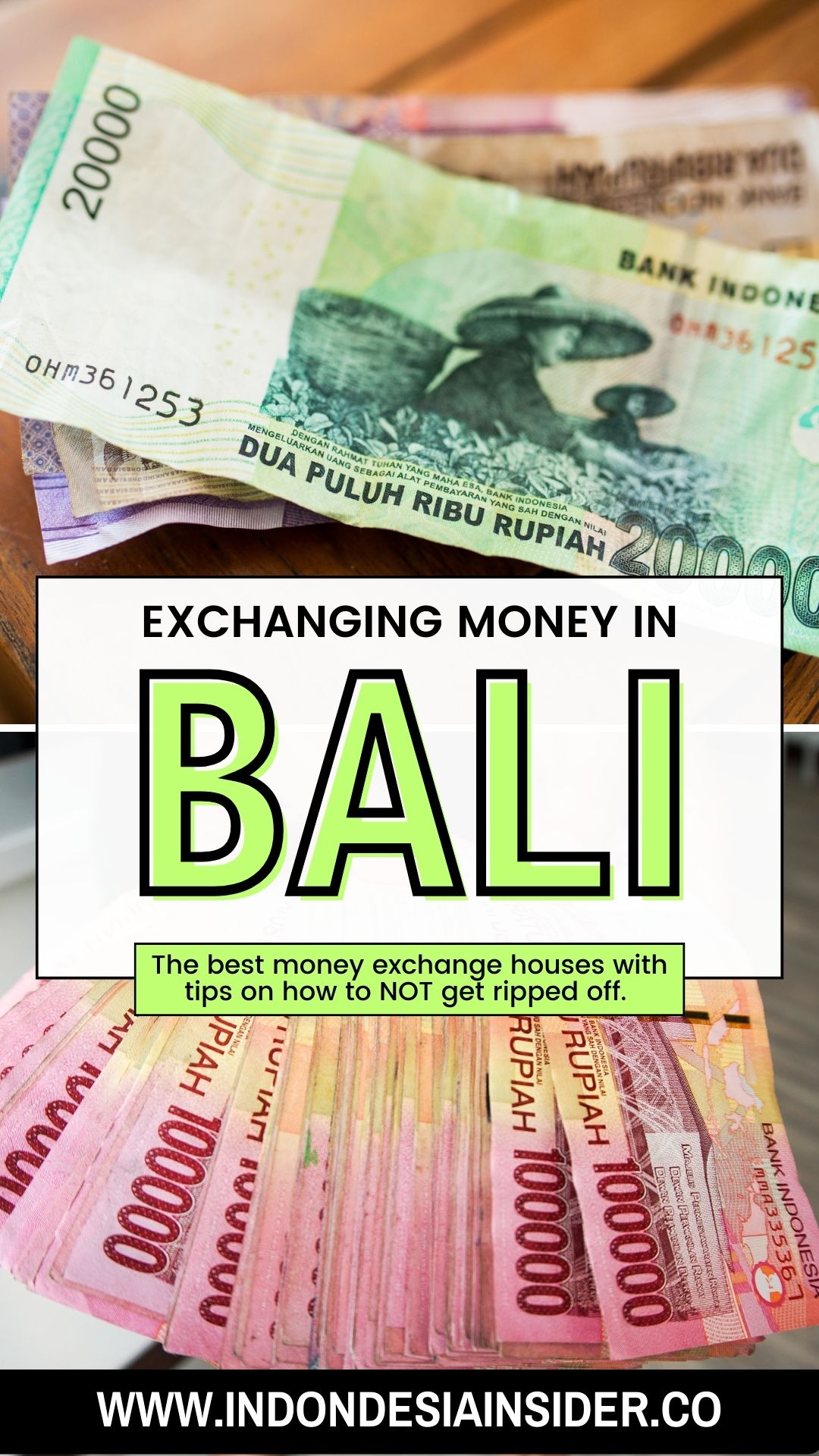
Bali attracts worldwide tourists. The island’s economy and currency exchange sector have benefited from this diversity. To enjoy and save money in Bali, you must understand money exchange.
This guide aims to navigate you through the process of money exchange in Bali, ensuring you get the best rates and avoid any unnecessary hassles.
This article covers Bali money exchange and safety guidelines. If you are visiting Bali for the first time, browse the tips below!
🇮🇩 Money exchange in Bali: understanding Indonesian currency
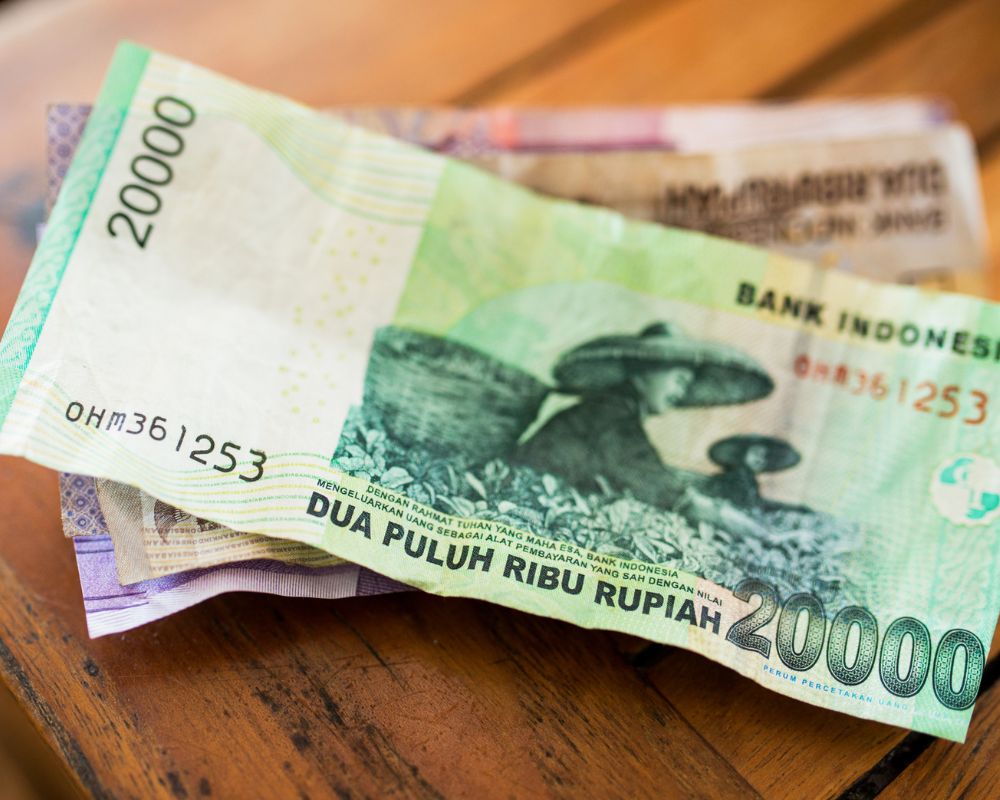
The Indonesian currency, the rupiah (IDR), can initially be challenging to understand. The currency in Bali, Indonesia, is the Indonesian Rupiah (IDR).
Like the rest of Indonesia, Bali uses this currency for all transactions, from buying a cup of coffee to paying for hotel accommodations. The Indonesian Rupiah is available in various denominations, both in coins and banknotes, making it versatile for all sorts of purchases.
You will find prices and costs typically listed in Rupiah, and it’s essential to get accustomed to the local currency to manage expenses effectively while on the island.
These are the denomination/notes in Indonesia together with the colors:
- Rp 1,000 – these are yellow
- Rp 2,000 – these are grey
- Rp 5,000 – these are brown
- Rp 10,000 – these are purple
- Rp 20,000 – these are green
- Rp 50,000 – these are blue
- Rp 100,000 – these are red
Coins are less popular and come in 25, 50, 100, 200, 500, and 1,000 rupiahs denominations. Notably, the 10,000 and 100,000 rupiah notes might appear identical, necessitating extreme caution while purchasing.
Consider using an online currency converter, such as OANDA, which includes a printed cheat sheet for easy reference.
When lesser denominations are unavailable, a unique component of Indonesian business is the provision of sweets or peanuts as change. It’s a harmless ritual that reflects native friendliness—yet another aspect of Bali’s distinct charm.
💵 Is it better to exchange money in Bali?
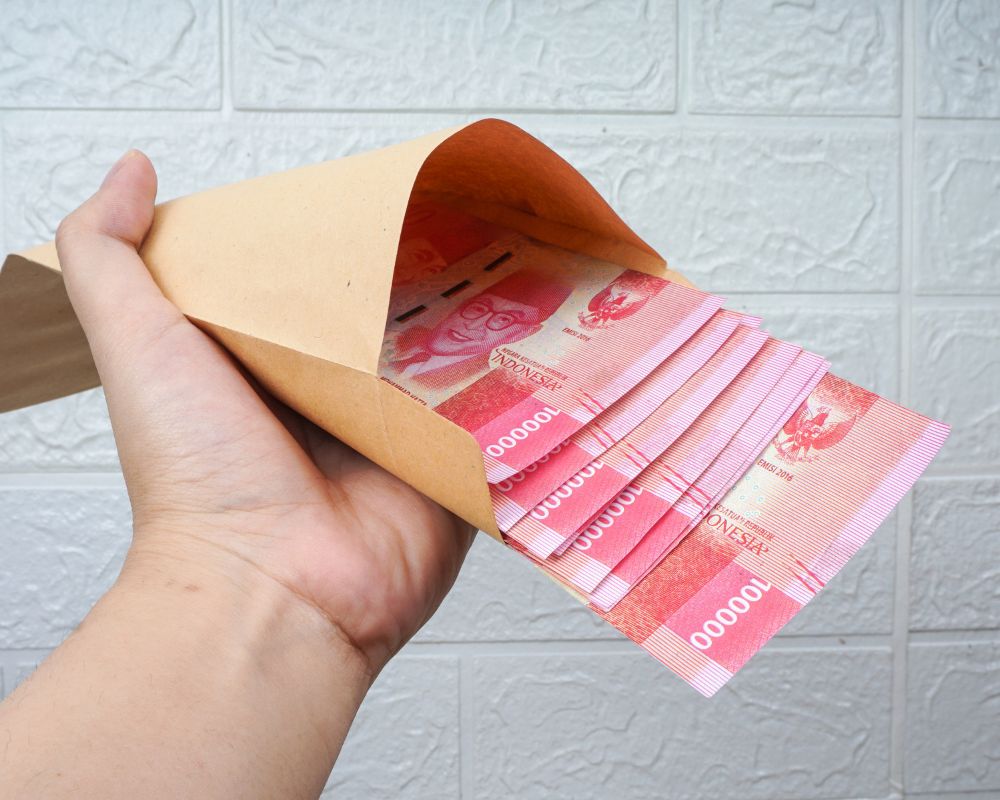
Bali has attractive currency rates, frequently better than those in your home country. As a result, swapping for a rupiah after arriving in Bali is often recommended.
Most money changers in Bali will exchange all major currencies, so you won’t need to bring anything besides your cash. More importantly, clean, undamaged bills attract a higher exchange rate.
If you’re acquiring US currency, make sure it’s recent, as older bills may not be accepted owing to historical counterfeiting issues.
It’s generally better to exchange some amount of money in Bali rather than doing all of it back home in the US. While you can exchange money in the US, the exchange rates in Bali are often more favorable.
Moreover, there are many reputable money changers in Bali that offer competitive rates. However, it’s advisable to exchange a small amount at the airport or beforehand for initial expenses and then look for a better rate at a money changer in town.
🤑 How much is $1 worth in Bali?
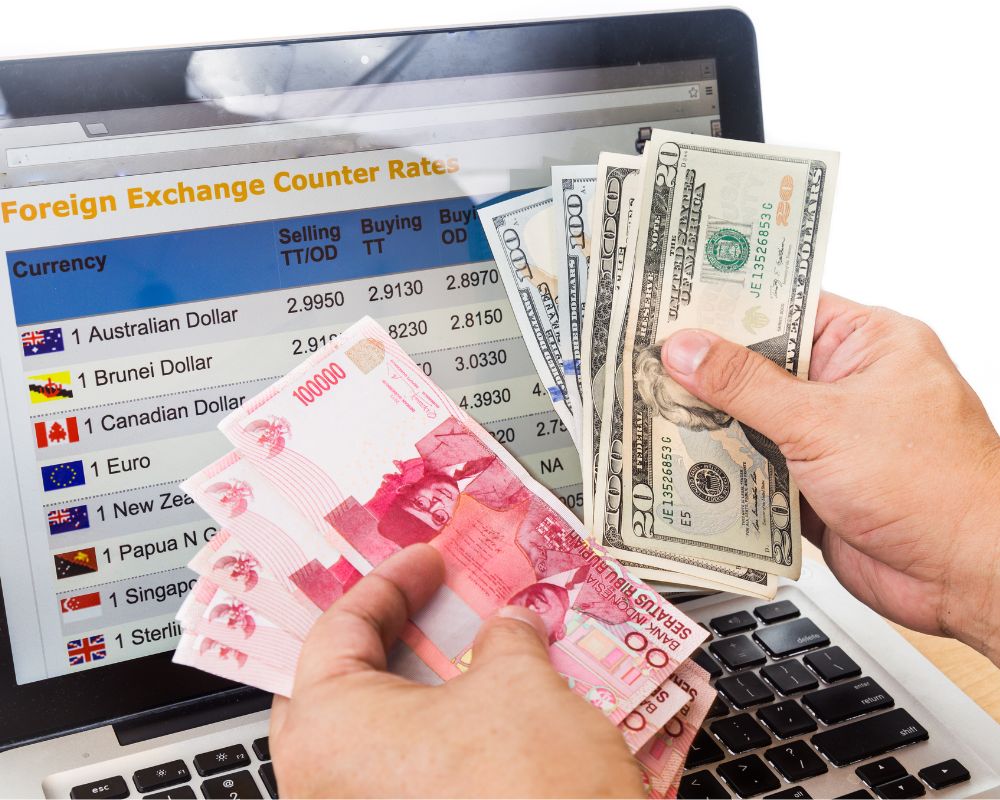
The value of $1 USD in Bali, in terms of the Indonesian Rupiah, fluctuates due to exchange rate changes. However, $1 can go a long way depending on what you’re looking to buy.
For instance, it could cover a bottle of water, a local snack, or contribute towards a short-distance public transport fare. Street food items like a plate of Nasi Goreng (fried rice) might cost a bit more than $1, showcasing how the cost of living and tourism-related expenses can be quite affordable.
It’s important to check the current exchange rate for the most accurate conversion and to have a better idea of what your dollars can buy in Bali.
💸 Can you exchange US dollars in Bali?
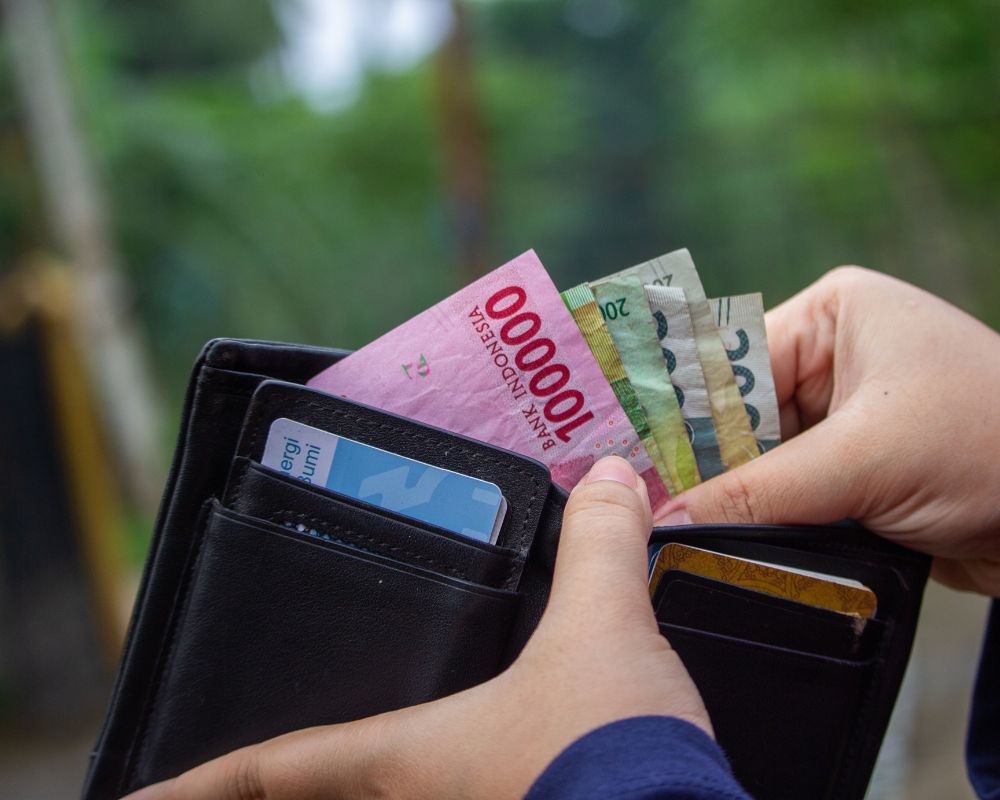
Yes, you can exchange US dollars in Bali at various locations including banks, hotels, and authorized money changers. While US dollars are widely accepted for exchange, it’s crucial to ensure that the bills are in good condition without tears or markings, as damaged bills might not be accepted.
Exchange rates vary between different places, so it’s wise to compare rates at a few locations. Additionally, always ask for a receipt and count your money before leaving the exchange counter to ensure the transaction is correct.
💳 Credit cards, ATMs, and airport exchanges in Bali
Credit cards are accepted for significant purchases, lodging (except smaller places), department stores, and larger restaurants. However, because this isn’t as common in Western countries, double-checking ahead of time is advised.
ATMs are common in the southern regions and around Ubud, but few in more rural areas such as Amed. ATMs can dispense either 50,000 or 100,000 rupiah notes, with machines that dispense the latter typically enabling more significant transactions (up to 3 million rupiahs).
Airport money changers provide a lower exchange rate than those outside the airport. You could exchange a small amount at the airport to cover the first 12-24 hours until you can access a higher rate changer.
💲 How much cash should I bring to Bali?
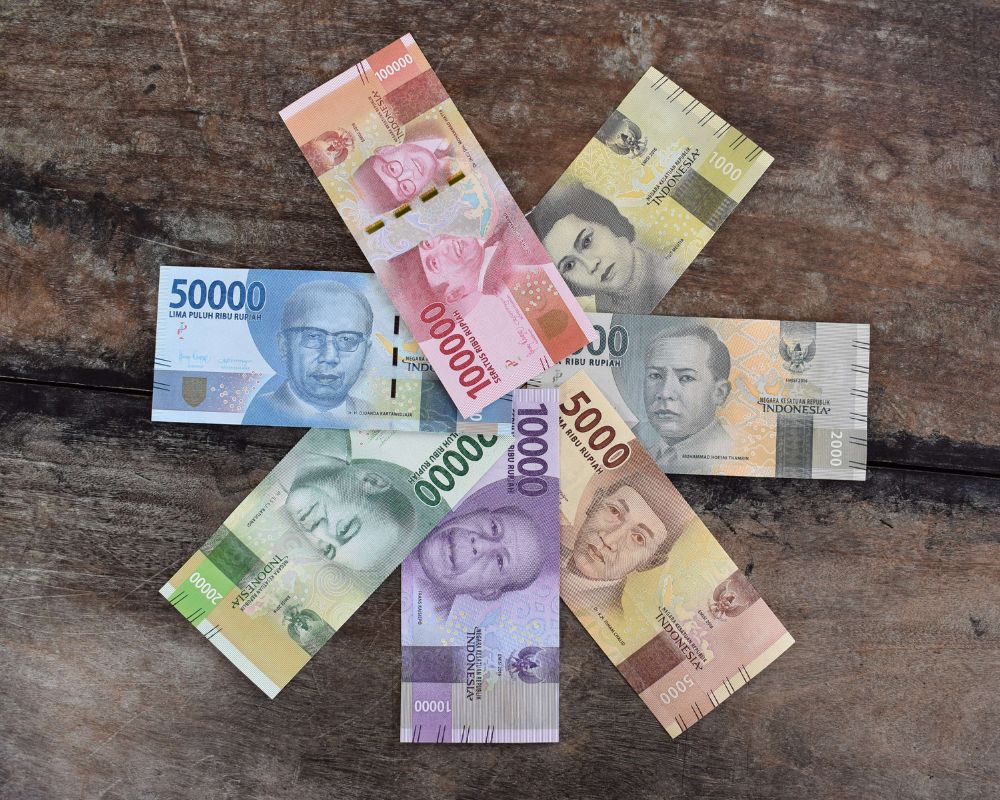
The amount of cash you should bring to Bali largely depends on your travel style, planned activities, and duration of stay. Bali caters to a wide range of travelers, from budget backpackers to luxury holiday-goers, so your expenses can vary greatly.
For budget travelers, planning around $20-$30 USD per day can cover basic accommodations in guesthouses or hostels, local meals, public transportation, and modest entertainment. This would mean bringing about $140-$210 USD in cash for a week.
Mid-range travelers, who prefer nicer accommodations, dining in restaurants, renting scooters, and participating in paid attractions or tours, might spend around $50-$100 per day. For a week, this translates to approximately $350-$700 USD in cash.
Luxury travelers, aiming for high-end resorts, fine dining, private tours, and spa treatments, could spend $200 or more per day. Thus, for a week, having access to $1,400 or more in cash would be advisable.
However, it’s not necessary to carry all this cash from home. You can bring a moderate amount of USD to exchange upon arrival (for immediate needs) and then withdraw more from ATMs as needed.
This approach balances convenience and safety. Keep in mind that ATMs are widely available in tourist areas, but it’s wise to check with your bank about international withdrawal fees and daily limits. Also, always have a safe way to store your cash and split it up to minimize loss or theft.
The Indonesian Central Bank implemented a new banking regulation in March 2018 that limits individuals’ ability to bring in foreign currency notes to 1 billion rupiah (about $75,000 USD). If someone brings in more, customs officers can take it.
Be warned that any money above 100 million rupiah (about $7,500 USD) must be declared while clearing customs, and you must record this on your immigration form, which must be filled and provided upon arrival.
🏦 Where is the best place to convert money in Bali?
Here is the most trusted money exchange establishment in Bali:
Money exchange in Kuta, Bali
- Central Kuta Money Exchange Kuta Beach II
- PAM Money Changer (Pradnyana Artha Mandiri)
- Bali Exchange ( PT. Bali Intan Putra ) Money Changer
- MPB Money Changer
Seminyak Money Exchange
- BMC Seminyak
- GAV MONEY CHANGER SEMINYAK (PT. GEMILANG ARTHA VALINDO)
- Amandana Money Changer
- Central Kuta Kerobokan
- MPB Money Changer Kerobokan
Ubud Money Exchange
Canggu Money Exchange
Uluwatu Money Exchange
Where is the Best Money Exchange in Sanur?
Here are trusted money exchanges in Sanur:
- BSA Money Changer
- SUNRISE MONEY CHANGER (PT. SANUR CEMERLANG VALASINDO)
- Pt. Dirgahayu Valuta Prima
- MPB Money Changer
✅ Money Changers in Bali: How to not get ripped off
Despite the island’s charm, remember that not everyone has the finest intentions. Exchanging money in Bali is generally safe. However, if you follow the instructions below, you can easily avoid such pitfalls:
- Avoid the Unauthorized Money Exchange – Avoid using a money changer located down an alley, behind another company, or without an “authorized” sign.
- Keep Your Money – Don’t give up until you know an honest exchange. Allow no interruptions during the transaction and refuse notes with denominations less than 50,000 or 100,000.
- Maintain Control of the Transaction – Never allow anyone to touch it after you have counted the rupiah. If required, double-check your calculations with a calculator.
- Reiterate and Retain – Count the rupiah twice before handing over your money. Keep the rupiah in your hand and do not return it to the counter.
- Trust Your Instincts – If you feel uneasy or suspect, leave. If you have been duped, return and demand the remainder of your rupiah. Once you’ve discovered a trustworthy changer, keep with them.
Following these tips will safeguard you from scams, ensuring your Bali adventure remains a positive memory.
USD MONEY TIP: If you have an older USD bill, try exchanging it with a local bank in Bali.
🆚 Is it better to use cash or card in Bali?
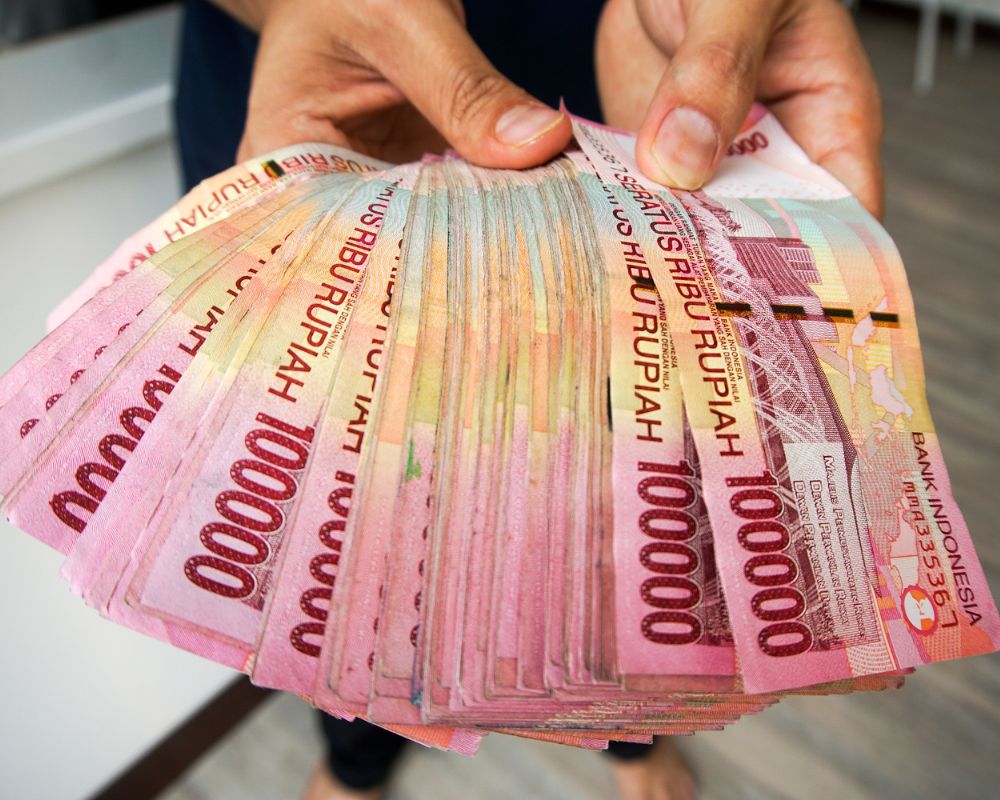
In Bali, using cash is generally better for smaller transactions, such as at local markets, street food stalls, and some taxis. Many small businesses do not accept cards, or if they do, they might charge an additional fee for card payments.
However, for larger expenses like hotel stays, restaurant bills, and activities, using a credit card can be convenient and offer additional security. It’s advisable to carry a mix of both cash and a card. Inform your bank of your travel plans to avoid any issues with card transactions while abroad.
Need more information about Bali travel?

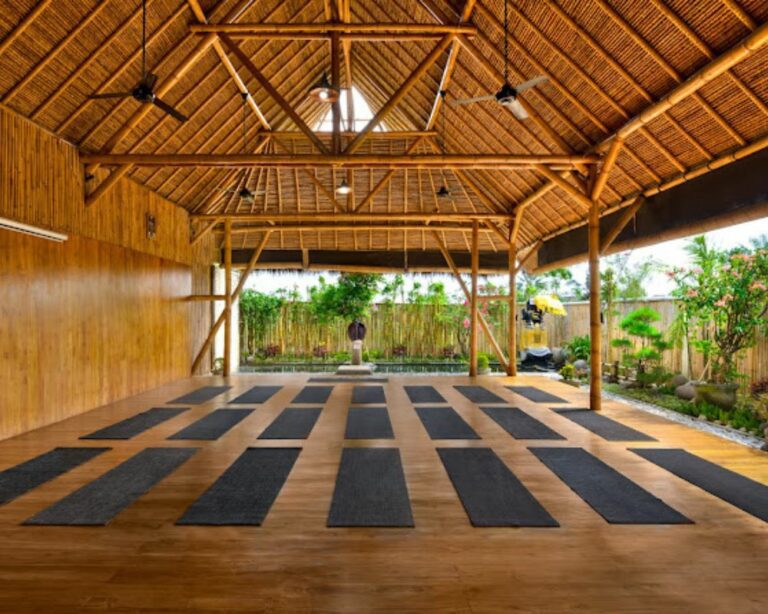

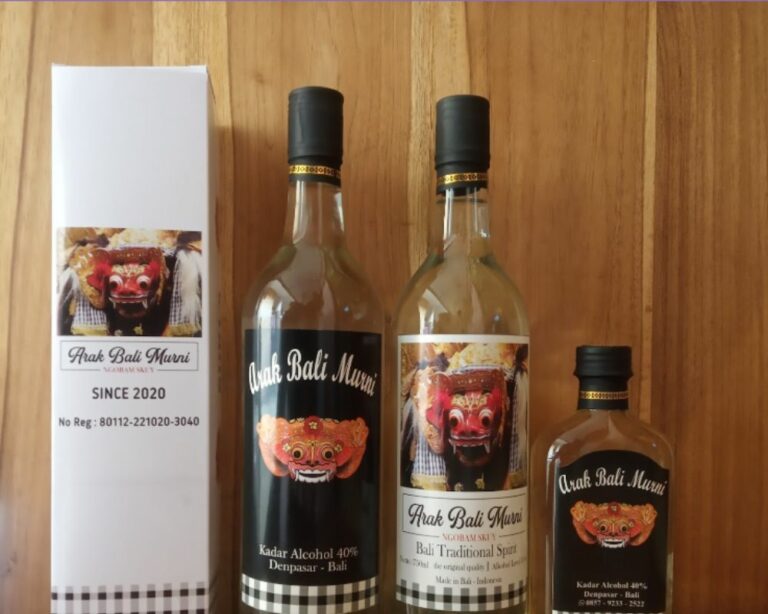
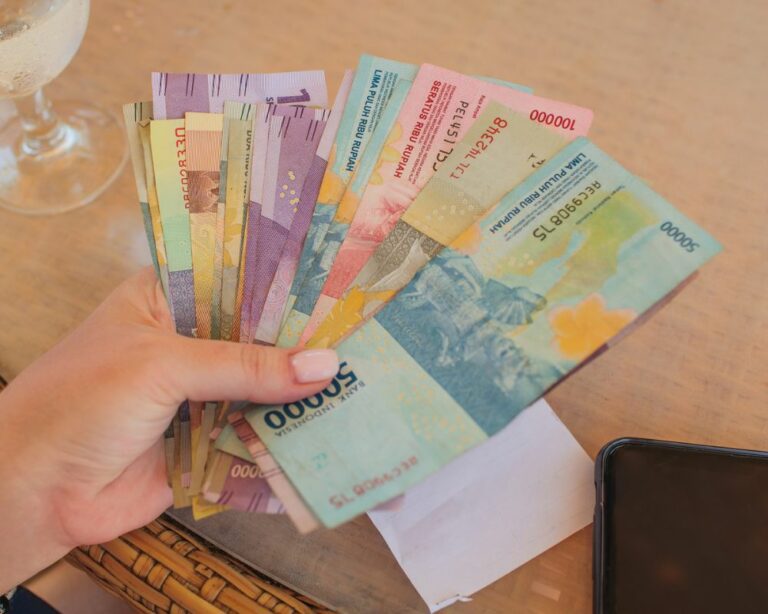
![Editor’s Pick: 7 best hostels in Uluwatu Bali [from $13 per night]](https://www.indonesiainsider.co/wp-content/uploads/Bali-Bobo-best-hostel-in-Uluwatu-for-solo-female-travelers-768x614.jpg)